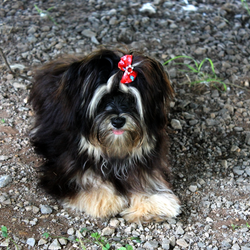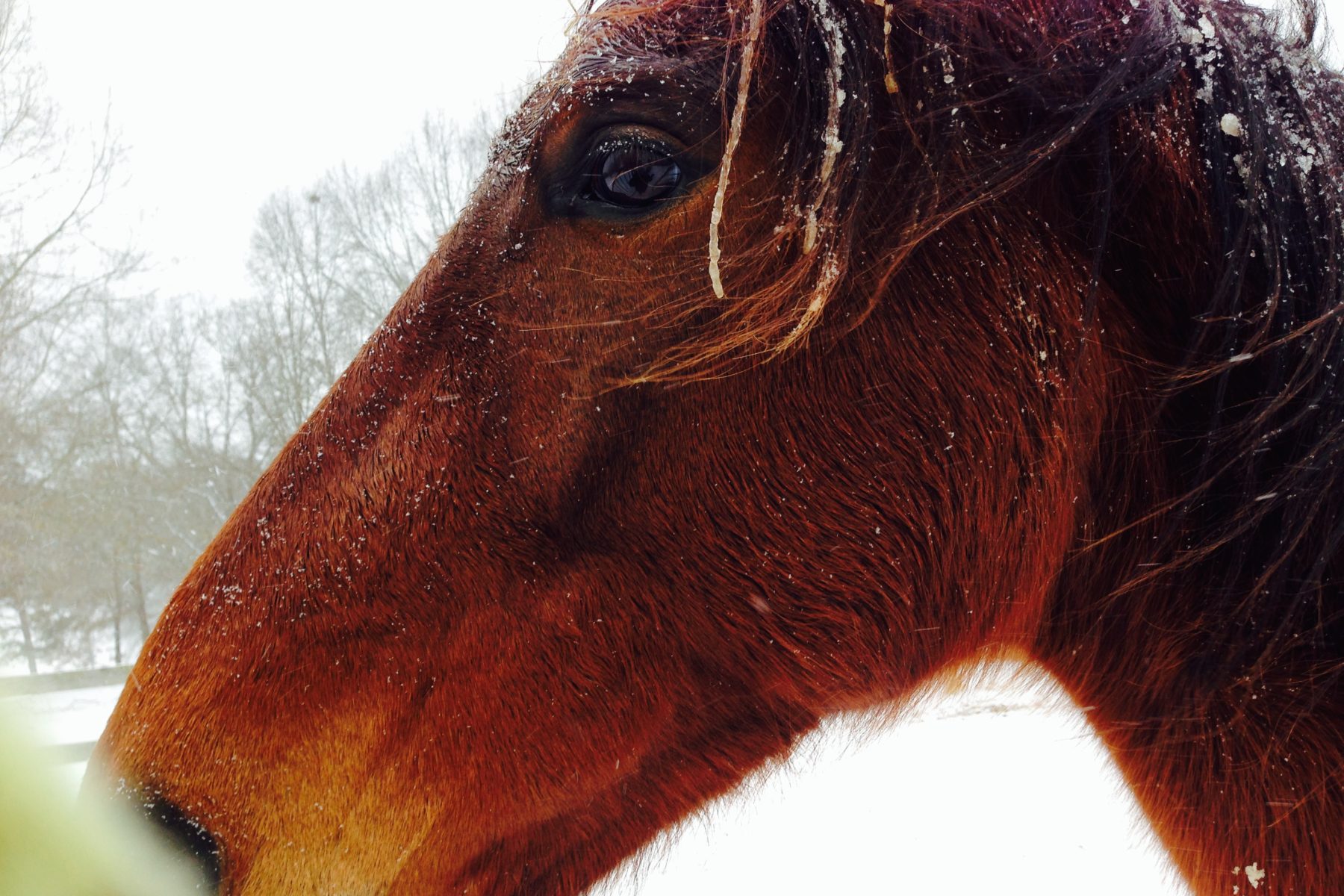Early Neurological Stimulation

Early Neurological Stimulation and “The Rule of Sevens for a More Sound Dog
Early neurological stimulation was developed by the U.S. Military canine program to give puppies an advantage in life. We use these techniques on all our puppies here at Alabama Havanese to help develop a sound dog in the future. Our goal is to breed Havanese dogs with excellent behavior patterns. Below are the five exercises that I perform on each puppy every day from one week old.
1. Tactile stimulation: Time of stimulation 3-5 seconds
Holding the pup in one hand, the handler gently stimulates (tickles) the pup between the toes on any foot using a Q-tip. It is not necessary to see that the pup is feeling the tickle.
2. Head held erect: Time of stimulation 3 -5 seconds.
Using both hands, the pup is held perpendicular to the ground (straight up), that its head is directly above its tail. This is an upwards position.
3. Head pointed down:Time of stimulation 3 -5 seconds.
Holding the pup firmly with both hands, the head is reversed and is pointed downward so that it is pointing towards the ground.
4. Supine position: Time of stimulation 3 -5 seconds.
Hold the pup so that its back is resting in the palm of both hands with its muzzle facing the ceiling. The pup while on its back is allowed to sleep struggle.
5. Thermal Stimulation: Time of stimulation 3 -5 seconds
Using a damp towel that has been cooled in the refrigerator for at least five minutes. Place the pup on the towel, feet down. DO NOT RESTRAIN it from moving.
Five benefits have been observed in canines that were exposed to the Bio- Sensor stimulation exercises
Improved cardiovascular performance
Stronger heartbeats
Stronger adrenal glands

More tolerance to stress
Greater resistance to disease
The adrenals are small glands located just forward of the kidneys. They are so small, in fact, they were virtually ignored by early anatomists for centuries. Although small in size, they are extremely important in the overall hormonal balance of the body.
The adrenal glands also interact with the hypothalamus and pituitary gland; the collaboration of the three glands is known as the hypothalamic-pituitary-adrenal axis (HPA axis). Their joint activities help control the body’s reactions to stress, whether it is physical or psychological. They also help regulate body processes such as digestion, the immune system, and energy usage.
In tests of learning, stimulated pups were found to be more active and were more exploratory than their non-stimulated littermates over which they were dominant in competitive situations.
Secondary effects were also noted regarding test performance.
In simple problem-solving tests using detours in a maze, the non-stimulated pups became extremely aroused, whined a great deal, and made many errors. Their stimulated littermates were less disturbed or upset by test conditions, and when comparisons were made, the stimulated littermates were calmer in the test environment, made fewer errors and were only occasionally distressed when stressed.
THE RULE OF SEVENS … TIPS ON PUPPY SOCIALIZATION
Pat Hastings, AKC judge and author of The Puppy Puzzle offers these hints for socializing very young puppies.
***By the time a puppy is 7 weeks old it should have:
- Experienced 7 different surfaces, such as: carpet, concrete, wood, vinyl, grass, dirt, gravel, wood chips, newspaper, etc.
- Played with 7 different types of objects, such as: big balls, small balls, soft fabric toys, fuzzy balls, squeaky toys, metal items, wooden items, paper/cardboard items, milk/soda jugs, etc.
- Experienced 7 different locations, including: front yard, backyard, basement, kitchen, car, garage, laundry room, bathroom, crate, kennel, etc.
- Exposed to 7 challenges, such as: climbed a box, climbed off a box, gone through a tunnel, climbed up steps, climbed down steps, climbed over obstacles, played hide and seek, gone in and out of a doorway with a step, etc.
- Eaten from 7 different containers: metal, plastic, cardboard, paper, pie plate, etc.
- Eaten in 7 different locations: crate, yard, kitchen, basement, laundry room, bedroom, x-pen, etc.
- Met and played with 7 new people, including children and the elderly.
Early Socialization is extremely important to the development of a sound puppy and must be done before puppy reaches 16 weeks. Implementing Early Neurological Stimulation and the “Rule of Seven”[i], has a tremendous effect on producing sound and confident adult dogs. Our program is proud to use both methods in the ongoing development of our puppies.
